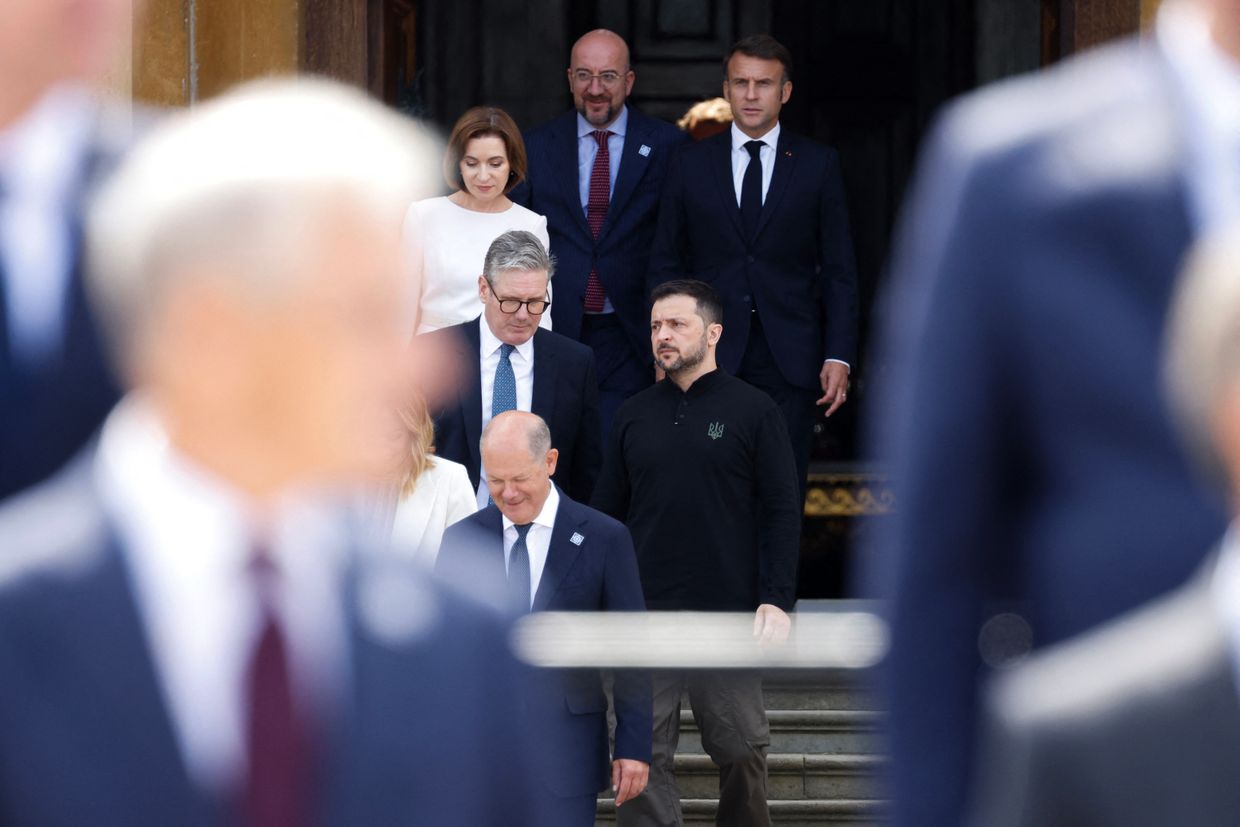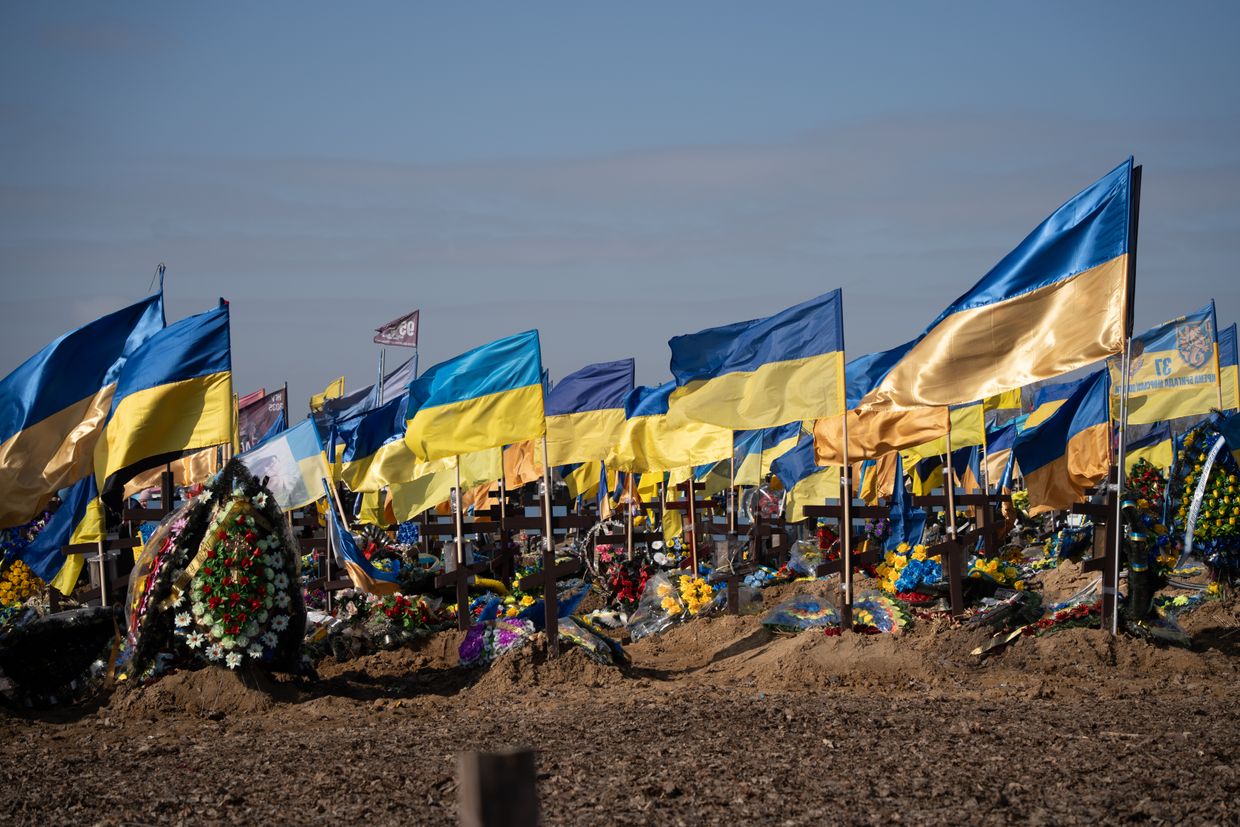JD Vance's Munich speech met with shock, bewilderment, and 'almost no applause'

U.S. Vice President JD Vance addressing the Munich Security Conference in Munich, Germany, on Feb. 14, 2025. (Olena Zashko/The Kyiv Independent)
U.S. Vice President JD Vance stunned those watching on Feb. 14 when his speech at the Munich Security Conference turned into a searing attack on Europe's ideals and a call to embrace far-right political parties.
At an event focused almost entirely on how to end Russia's full-scale invasion of Ukraine, Vance said what he fears most isn't authoritarian states but Europe's "threat from within."
"The threat I worry the most about vis-a-vis Europe is not Russia, it's not China, it's not any other external actor. It is the threat from within. The retreat of Europe from some of its most fundamental values," he said.
Vance went on to admonish Europe for not paying enough attention to "uncontrolled migration" and for what he described as the "retreat" of free speech.
He argued that Europe should not "just talk about democratic values" but "live them," adding the continent could not "force people what to think, what to believe."
Vance said these efforts included restrictions on "misinformation," which he described as a "Soviet-era" word, and laws against abortion protests that he said unfairly silenced Christians.
Speaking a little over a week before the German elections, the vice president called on European nations to drop their opposition to far-right parties such as the Alternative for Germany (AfD), which Berlin suspects of extremism.
"If you are afraid of your own people, there is nothing America can do for you," he said, adding: "You cannot win a democratic mandate by censoring your opponents or putting them in jail."
The speech stunned those in attendance — Ukrainian lawmaker Oleksii Honcharenko said in a post on X the speech amounted to " the total humiliation of all European leaders."
"There was almost no applause," he added in another post.
US Vice President Vance just spoke. The only thing that can be said about Vance's speech was the total humiliation of all European leaders. People in the room are shocked.
— Oleksiy Goncharenko (@GoncharenkoUa) February 14, 2025
For most of Vance's speech, the European leaders and bureaucrats looked at each other, and there was almost no applause.
— Oleksiy Goncharenko (@GoncharenkoUa) February 14, 2025
"It's a strange style," EU Defense Commissioner Andrius Kubilius told the Kyiv Independent at the conference, adding: "Of course, he attracted a lot of attention, but (there were) no substantial messages. Not on Ukraine, not on Gaza."
Kubilius said that he was "not surprised" at the speech, adding it was now a question of how Europe reacted to it.
"And my reaction is quite simple — keep calm and carry on," he said.
Federico Borsari, a resident fellow at the Center for European Policy Analysis (CEPA), told the Kyiv Independent that Vance's comments "risk creating a fracture between the U.S. and Europe at a time when unity at all levels is essential to counter Russia (and) ensure a strong transatlantic alliance and continued support for Ukraine."
"Rather than using the prestigious MSC’s stage to promote the image of the new U.S. administration in front of European leaders... the U.S. vice president decided to openly downplay a very tangible Russian threat in front of an audience comprising people from countries that suffered decades of brutal Soviet occupation and directly criticize European countries and their governments... for their alleged attack on democracy and freedom of speech," Borsari noted.
The expert also highlighted that Vance's comments were promptly praised by members of the far-right AfD.
Elsewhere, social media was awash with criticism of the speech — Gideon Rachman, the chief foreign affairs commentator for the Financial Times (FT), described it as "shocking hypocrisy."
Shocking hypocrisy from Vance - lecturing Europe on democracy when he serves as vice president to a man who attempted a coup in the US
— Gideon Rachman (@gideonrachman) February 14, 2025
Carl Bildt, co-chair of the European Council on Foreign Relations, said the speech was "significantly worse than expected."
The #MSC2025 speech by 🇺🇸 VP Vance was significantly worse than expected. At best it was totally irrelevant to European or global security concerns. At worst it was blatant interference in the 🇩🇪 election campaign in favor of far-right AfD. pic.twitter.com/4IKknWhoR8
— Carl Bildt (@carlbildt) February 14, 2025
Speaking at the conference after Vance's speech, Germany's Defense Minister Boris Pistorius tackled the vice president's comments about the AfD head-on.
"Democracy does not mean that a vociferous minority can decide what truth is… democracy must be able to defend itself against extremists," he said.
German Defense Minister Pistorius reacts to Vance's speech: "This is not acceptable." pic.twitter.com/LdVuLC6PbU
— AlexandruC4 (@AlexandruC4) February 14, 2025
Vance later met with President Volodymyr Zelensky. U.S. Secretary of State Marco Rubio and Trump's special envoy for Ukraine and Russia, Keith Kellogg.
"Our teams will continue to work on the document (on critical minerals). We have addressed many of the key issues and look forward to welcoming General Kellogg to Ukraine for further discussions and a deeper assessment of the situation on the ground," Zelensky wrote.
"We are ready to move towards real and guaranteed peace as quickly as possible. We sincerely appreciate President Trump's determination to help stop the war and provide Ukraine with justice and security guarantees," Zelensky added.
I wonder if JD Vance is planning to lecture his boss’s buddy Vladimir Putin on democracy and free speech. 🤔
— Ed Davey (@EdwardJDavey) February 14, 2025
Vance's speech came at the end of a tumultuous week for U.S.-Europe relations and the future of the war in Ukraine.
U.S. President Donald Trump and his top officials on Feb. 12 appeared to undermine Ukraine’s leverage in peace talks, renewing fears that his plans for a quick resolution could amount to a victory for Russia.
Trump announced he had held phone calls with both Russian leader Vladimir Putin and Zelensky, saying peace negotiations would start "immediately" and a ceasefire is in the "not too distant future."
Earlier in the day, U.S. Defense Secretary Pete Hegseth said "returning to Ukraine's pre-2014 borders is an unrealistic objective," and that NATO membership for Ukraine is not an option.
JD Vance says Putin isn't Europe's biggest threat less than 24 hours after Putin hits Chernobyl with a drone. You can't make this stuff up.
— Devin Duke (@sirDukeDevin) February 14, 2025
European leaders — suddenly left out of discussions after nearly three years of close involvement with the U.S. on Ukraine-related issues under President Joe Biden’s administration — scrambled to react to Trump’s comments.
Kaja Kallas, the EU's top diplomat, said on the same day: "Why are we giving (Russia) everything they want, even before negotiations have started? … If there is an agreement made behind our backs, it simply will not work."













